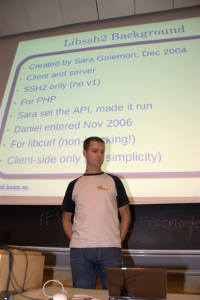I realize no t a lot of you who read my site or blog are aware of my actual real world day-job situation (nor should you have to care), but I still want to let you guys know that I’m ending my employment at CAG Contactor and my intention is to find my way forward with my own company, Haxx AB, as employee number 1.
t a lot of you who read my site or blog are aware of my actual real world day-job situation (nor should you have to care), but I still want to let you guys know that I’m ending my employment at CAG Contactor and my intention is to find my way forward with my own company, Haxx AB, as employee number 1.
Haxx has existed for over ten years already, but we’ve so far only used it for stuff on the side that wasn’t full-time nor competing with our day-jobs. Starting in October, I’ll now instead work only for and with Haxx.
I don’t expect much in my actual day to day business to change much as I intend to continue as a contract developer / consultant / hacker doing embedded, Linux, open source and network development as an expert and senior engineer.
So if you want my help, you can continue to contact me the same way as before, and I can offer my services like before! 😉 The only difference is in my end where I get more freedom and control.
This move on my behalf will affect some of you indirectly: I will move a lot of web and other internet-based services from servers owned and run by Contactor to servers owned by Haxx. So, expect a lot of my sites and contents to get some uptime glitches in the upcoming month in my struggle to get things up on the new place(s).




